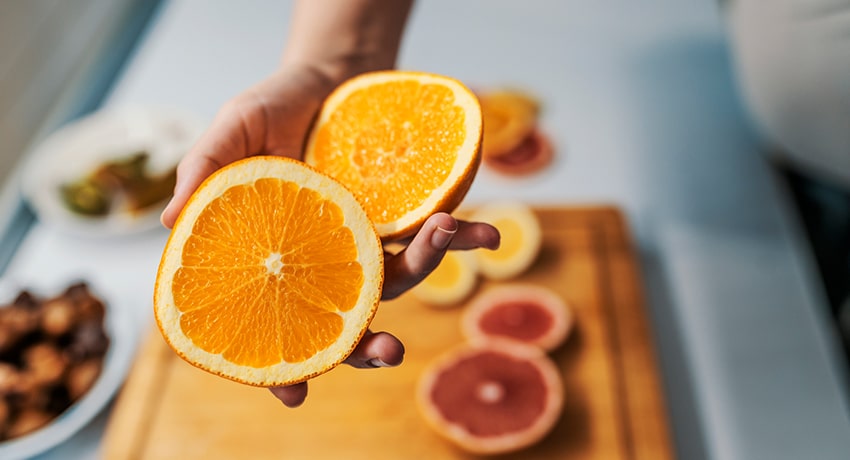You may think vitamin C is only good to stave off a case of the sniffles, but its benefits are far more bountiful.

“Vitamin C is a strong antioxidant that limits the damage of oxidative stress in the body caused by free radicals. This can reduce inflammation, risk of cancer, and provide protective benefits against cardiovascular diseases,” explained Monique Dorsey, registered dietitian with UT Physicians.
Additionally, the nutrient aids in collagen production, helping to heal wounds and regrow skin.
How much vitamin C do I need?
With all its pros, you may be wondering how you can get enough vitamin C in your diet. Thankfully, Dorsey shares that a typical U.S. diet is packed full of the antioxidant.
“Vitamin C deficiency is relatively uncommon in the United States. However, smokers, individuals with limited food variety, or those with malabsorption issues are at a higher risk,” Dorsey said.
Those who are not consuming enough of the vitamin are at risk of developing scurvy. Common symptoms include fatigue, inflammation, joint pain, and bruising.
To boost your intake, Dorsey suggests adding the following to your grocery list:
- Oranges
- Grapefruit
- Green and red bell peppers
- Kiwis
- Broccoli
- Strawberries
- Brussels sprouts
Depending on your age and sex, your daily recommended intake may vary. Adult men should consume 90 mg daily, while adult women only need 75 mg daily. Those who smoke need 35 mg more of the antioxidant per day, as nicotine usage depletes the body’s vitamin C levels.



